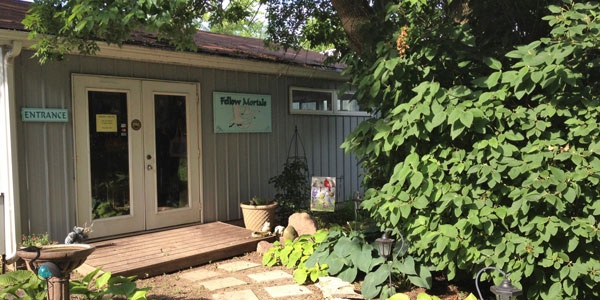By Amanda Durish Cook
A Wisconsin wildlife hospital and refuge lost its case against American Transmission Co., as a judge decided that the company has the right to remove trees from the sanctuary’s property.
Walworth County Judge Daniel Johnson ruled against Fellow Mortals Wildlife Hospital in Lake Geneva, Wis., following a four-day trial. Johnson ruled that ATC had the right to cut any trees in the 50-foot easement that in the company’s “reasonable opinion” could pose a threat to its 138-kV line in the future.
“So if the tree can grow tall enough that it reaches the lines even 50 years from now, it could come down,” said attorney Robert Kennedy, who represented the hospital.
Kennedy said this likely means the end for the sanctuary’s “Grandfather Spruce,” an estimated 100-year-old Norway spruce, that had only been periodically trimmed since the easement was granted. (See Wildlife Refuge Preps for Trial Against ATC Clear-Cut.)
But ATC spokeswoman Jackie Olson said the company has not yet formulated a tree-cutting plan for Fellow Mortals. “We respect the care and commitment that Fellow Mortals has for rehabilitating wildlife. Our team is working to plan our next steps,” she said.
No Precedent
At issue was a 1970 easement between the hospital’s previous property owner and ATC’s predecessor, Wisconsin Power and Light. Until recently, the transmission company had allowed periodic trimming of Grandfather Spruce and other trees.
The hospital filed suit after receiving notice that ATC planned to clear-cut the 50-foot easement, which Fellow Mortals said would remove screening that protects its animals from a nearby roadway.
Johnson said he regretted there would be an impact on the sanctuary, but he concluded that the issue was one of “cold, hard real estate,” Kennedy recounted.
Kennedy, however, said Johnson’s ruling would not set a precedent unless the case reached the appellate level.
“It’s possible that other courts at a trial level might rule differently,” he said, noting that many older aging easements bear language similar to the one currently held on Fellow Mortals. “It appears that ATC recognized back in the early 2000s that the easement language was ambiguous and they stopped using that wording. All of the newer easement language is refined,” Kennedy said.
“Easements like this literally allow power companies to destroy large swaths of natural forest,” Kennedy added. “When you consider how many thousand miles of line ATC has and the acreage it covers, that’s a vast amount of natural timber that’s going down. Legislators should have looked at that and done something to protect the natural growth.”
Hospital Prepares for Cutting
In response to the Oct. 13 ruling, Fellow Mortals founders Yvonne Wallace Blane and Steven Blane are working with their staff to move as many animals into the hospital as they can to shield them from the tree-cutting. “We have an order of priorities. I assume they’re able to start cutting at any time,” Yvonne Blane said.
Blane said Johnson visited the habitat and praised the hospital’s work.
“I think the judge didn’t have a choice,” Blane said. “What was worked out [in the 1970 easement] is ambiguous. No one is arguing that line areas [don’t] need to be safe and maintained. But after 46 years of trimming, it’s a change in policy that this company is making.”
Blane said the animal relocation includes capturing 39 birds that are permanent residents of the hospital’s sanctuary area, including a 36-year-old great horned owl that serves as a foster parent to other orphaned owls. She also said her staff is working to release any treated animals that are ready to re-enter the wild. But she said there’s not much she can do for four elderly deer that have been affected by chronic wasting disease and are permanent residents of the hospital; they will have to weather the cutting in a half-acre pen.
Blane said she was proud that the case did not provoke animosity. “ATC attorneys and staff were very respectful. Our issue is not with the people; it’s with the policy,” Blane said.
She said she does not rule out the possibility that the company might return to the occasional trimming schedules, leaving the trees standing. “Perhaps knowing that they can do whatever they want, someone with the ability to be harsh would be kind. They might not care about public opinion, but boy, that would make so many people happy.”
Hospital’s Work Continues
Blane said Fellow Mortals spent $40,000 in donations on the case and was not looking to appeal the decision. She said moving the hospital is impractical because it would cost millions. So the Blanes and their staff plan to continue their work from the current location.
“We have to adjust; we have to move on. We’re not going to let us make this bitter; we’re not going to stamp our feet here. We’re going to show some dignity. One defeat doesn’t ruin everything.”
On Oct. 12, after the third day of the trial, the hospital was called to rescue an immature red-tailed hawk that had gotten caught on an Alliant Energy power line. The bird, which was suffering from hypothermia and shock, had exposed leg muscle from struggling against the pole. Blane said the bird will be in the hospital’s care while the leg heals, perhaps over the winter.




